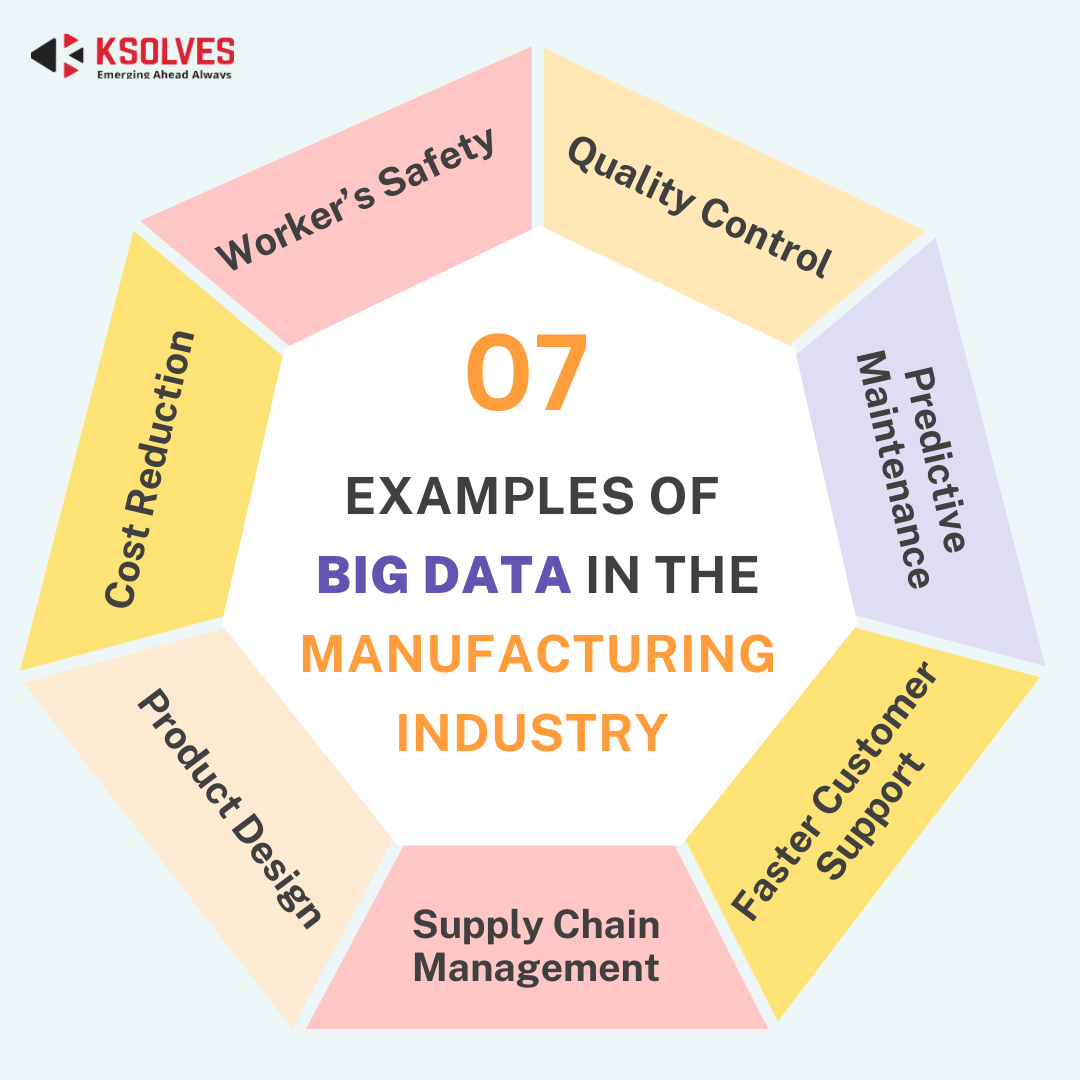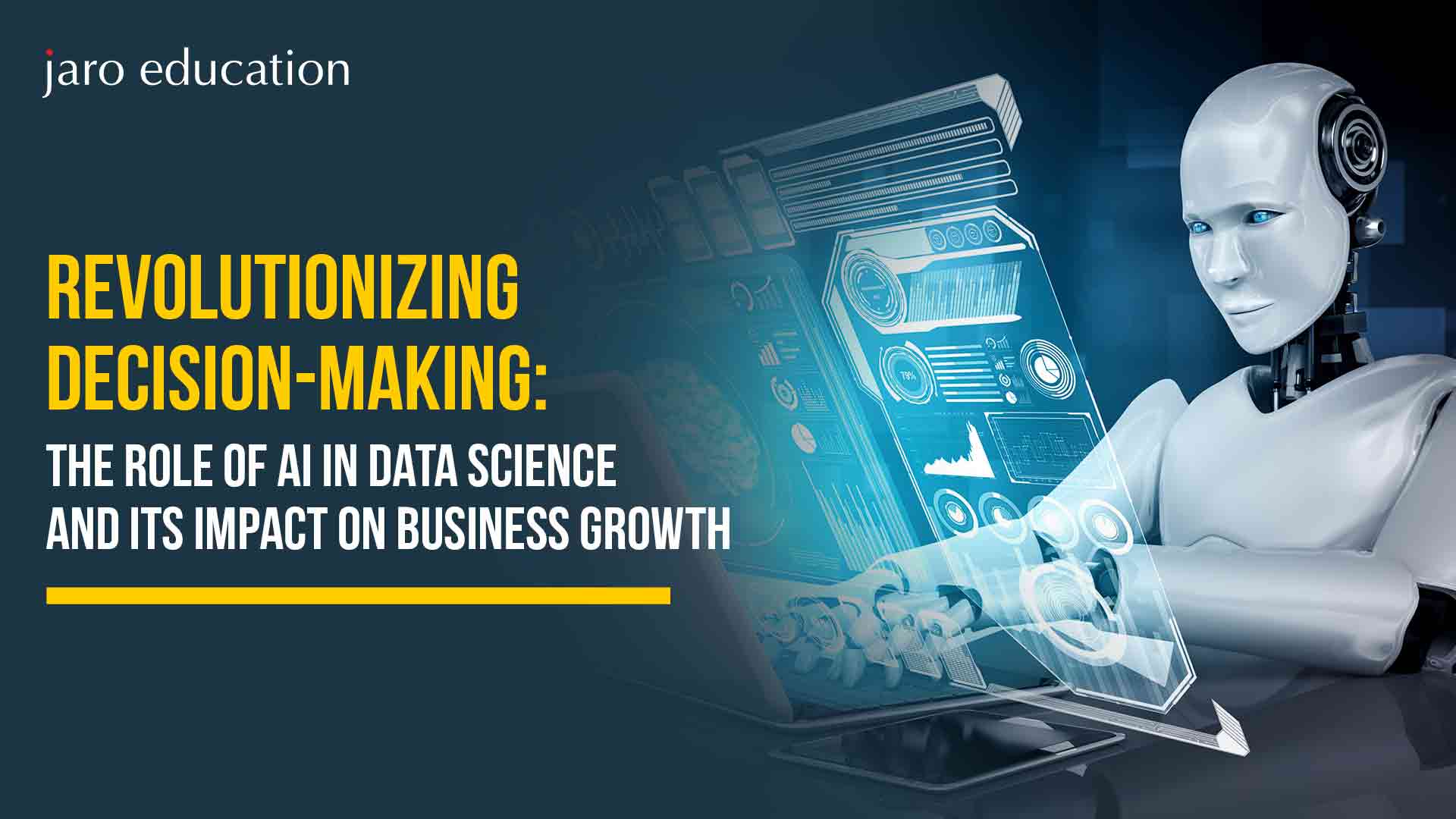8 Interesting Data Science Applications in the Manufacturing Industry
Table of Contents

The world of manufacturing is really being changed by data science! It is remarkable how data science is revolutionizing not only processes by making them more efficient but also inherently ‘smarter,’ thanks to the huge amount of data that can be turned into valuable insights. Exciting, right? As we investigate the interesting relationship between data science and manufacturing, it is only appropriate to detail some of the exciting data science applications that can improve productivity and increase product quality.
Data Science is leading the charge in disrupting manufacturing with new data driven technologies, from optimizing a supply chain to predicting machine breakdowns, data science is at the leading edge of the manufacturing sector’s digital revolution. In this blog, we discuss eight (8) fun data science applications that are disrupting the manufacturing sector. Each of these applications involves data driven, decision making that results in improved business outcomes and provides companies with a level of competitive advantage. We are excited to share with you some of the interesting data science applications in manufacturing!
What is the Manufacturing Sector?
Manufacturing is ultimately concerned with the construction of whatever your product is or is to be. This transformation can involve several methods: mechanical, physical, or chemical. It is how we make everything from daily stuff to complicated equipment. Manufacturing often evokes imagery of large factories with multi-million dollar machinery, but many small-scale manufacturing processes are closely held, such as artisanal, handicraft manufacturing.
The manufacturing sector is an important component of the global economy that serves as a foundation for job creation and development. Therefore, as we further examine the data science applications, it will be useful to understand the factors that have shaped the sector throughout time, as well as the need to be efficient and flexible in the digital economy we currently need to operate within.
The Scope of Data Science in Manufacturing

*scaler.com
With Industry 4.0, the manufacturing industry is changing more than ever before, with data analytics and artificial intelligence automating convention. Manufacturing is experiencing faster changes to meet market demand that have increased in complexity and a workforce that has significantly fewer skills than previously expected.
This is where data science applications, tools, processes, and outlooks can help you understand how to analyze customer preferences and market trends, as well as operational effectiveness. Data science affords manufacturing productivity the ability to collect and analyze data in all phases of the production life cycle, from design to supply chain. It helps manufacturers utilize all potential data to drive decisions regarding the assignment of resources in order to improve productivity and technological advancements over the life of the manufacturing process.
8 Popular Applications in the Manufacturing Industry
Given below are the top 8 data science applications in manufacturing:
1. Computer Vision: A New Lens on Quality Control
Computer vision, one of many exciting data science applications in manufacturing, relies on deep learning algorithms to analyze images to help detect defect detection with an extremely high degree of accuracy. Current methods of quality control often use human inspectors, which are time-consuming and can often have manual errors.
With computer vision, manufacturers have automated inspection processes where defects, could be small cracks or scratches, may not have even been noticed by human inspectors. Companies can use trained models saving time and resources while allowing only the best quality goods to hit the market. Imagine a perfect production line where every single item produced was perfectly inspected—that’s what data science applications in computer vision can allow for.
2. Inventory Management and Demand Forecasting: The Just-in-Time Approach
Proper inventory management is one of the other essential data science applications in a competitive environment. The Just-in-Time (JIT) inventory method allows for continual and real-time analysis of inventory levels to prevent the accumulation of excess inventory, as well as stock-out situations. But the complexity of traditional inventory management can be cumbersome and inaccurate.
Data science offers statistically advanced options for determining demand, which can allow manufacturers to forecast future inventory requirements based on historical data and market fluctuations. Companies can utilize applications like Excel, Power BI, and Python packages to alleviate demand uncertainty to drive actionable data, minimize costs, and enhance cash flow. Effective inventory management that uses this accuracy ensures manufacturers are prepared to meet customer demand when required without having money tied up in excess inventory.
3. Product Design and Development: Innovating with Data
Many design projects have traditionally lasted some time, going through cycles of trial and error. Designers had to depend on their experience and instinct, often taking too long and spending too much money. Data science has entered the scene and changed product design and development.
A computer-aided design (CAD) commission with simulated applications able to predict various designs can allow manufacturers to design, prototype and manufacture items. By taking advantage of customer feedback and market data combination a company can fine-tune their output before it reaches their production line. With data science applications, enabling a faster design but also a much more likely to be successful product at market.
4. Supply Chain Optimization: Streamlining Operations
A supply chain refers to the interconnected network of parties involved in the provision of a product or service to consumers. Managing suppliers, schedules, and inventories can be a difficult job when establishing a strong supply chain, as efficient product delivery and inventory management are vital components to a successful supply chain. That’s where data science comes in to provide analytical insight into the management and supply chain processes.
Through the use of RFID and barcode scanning technology, manufacturers can track their goods in real time. This allows them to properly manage inventory on hand. Data analytics allow companies to fully trust their forecasted demand and appropriately manage their support/supply chain operations. This increase in accuracy allows them to greatly improve customer satisfaction, reduce operational costs, and ultimately become more efficient.
5. Price Optimization: Finding the Sweet Spot
Setting the right price for a product is critical for success. Prices must be competitive while covering costs and meeting customer expectations. However, pricing strategies can be complex, influenced by factors such as demand fluctuations and supply chain costs.
Data science applications to equip manufacturers with the tools to analyze historical pricing data and market conditions. By employing time series models like ARIMA, data scientists can predict future price changes and recommend optimal pricing strategies. This level of insight helps manufacturers maximize profits while remaining competitive in the marketplace.
6. Fault Prediction and Preventive Maintenance: Staying Ahead of Breakdowns
Machine failures can lead to significant downtime and financial losses for manufacturers. To mitigate these risks, data science plays a crucial role in predictive maintenance. By collecting data from sensors monitoring various machine parameters—such as temperature, vibration, and humidity—companies can identify potential issues before they lead to breakdowns.
Machine learning algorithms analyze historical data to predict when a machine is likely to fail. This proactive approach allows manufacturers to schedule maintenance at optimal times, minimizing disruptions and ensuring smooth operations. Furthermore, computer vision can identify wear and tear on machine components, enabling timely replacements and enhancing overall equipment efficiency.
7. Warranty Analysis: Enhancing Customer Trust
Warranties exist to give customers peace of mind regarding their purchases. However, offering warranties comes with potential risks for manufacturers, namely, the risk exposure associated with the warranty claim process. For manufacturers, adding the cost of warranty and claim management can make everything expensive. This is where data science comes in. They help to better manage the warranty process by allowing manufacturers to effectively analyze warranty claim data.
Using anomaly detection techniques allows manufacturers to identify fraudulent warranty claims and improve response practices. Data scientists can use records on warranty claims, and analyze information from legitimate warranty claims to establish better product quality and ultimately a better service to their customers. Data-driven decisions will save the company money and foster customer trust.
8. Robotization: The Future of Manufacturing
Robots have become an integral part of modern manufacturing, capable of performing repetitive and dangerous tasks with precision and speed. Data science enhances robotization by enabling smarter, more adaptable robotic systems.
Data science applications in manufacturing use programming languages like C and Python to develop algorithms that allow robots to learn from their environments and optimize their operations. This adaptability leads to reduced waste, increased output, and improved workplace safety. As robots take on more responsibilities, manufacturers can focus on innovation and strategic growth.

*ksolves.com
Exclusive Data Science Programme for You
Post Graduate Certificate Programme in Applied Data Science & AI – IIT Roorkee
Data science applications and artificial intelligence are powerful tools for analyzing real-world data and generating insights that can benefit businesses, the economy, and society. These skills have become essential for organizations in recent years. The Post Graduate Certificate Programme in Applied Data Science & AI (PGCP DSAI) at IIT Roorkee is designed to help working professionals build a solid understanding of data science and AI. Participants will gain practical skills in relevant software and learn how to make informed decisions in various scenarios.
Programme Highlights
- In-demand conceptual skills and software tools
- Hands-on experience with datasets and software
- Minimal usage of mathematical jargon
- Two campus immersions covering 8 days in total (optional modules)
- Live online teaching and discussions by IIT Roorkee faculty
- Regular quizzes for revision and personal growth
- Hackathons for boosting a healthy competitive spirit
- Holistic Curriculum— a blend of case studies, projects
- Capstone project with customized topics and personalized guidance
your knowledge with Jaro Education
Without a doubt, higher education plays a crucial role in developing a workforce equipped for data science and artificial intelligence. So, to support this transition, Jaro Education brings the industry-standard programme that aligns with today’s industry requirements.
We are an online higher education and upskilling company bringing online degree courses and certification programmes by collaborating with India’s most prestigious universities. Those who enrol with us for online courses, we ensure to offer the right academic guidance and career counseling to keep them on the right academic track. So, if you’re registering for the Post Graduate Certificate Programme in Applied Data Science & AI offered by IIT Roorkee, you can access the “Jaro Advantage”:
- Unparalleled career guidance and support
- Learn from the best-suited academic, faculty, and industry mentors
- Leverage peer-to-peer learning experience
- Stay up to date with the latest insights from your alma mater
Final Thoughts
The possible data science applications in manufacturing are vast and are constantly growing. With the sector undergoing digital transformation, it is even more important to understand data and to harness its uses. From quality control to supply chain optimization, benefits of data science not only helps to improve operational efficiency, they also encourages innovation and development.
Manufacturers willing to consider data as part of their strategy will be able to better handle the challenges of today’s marketplace. By adopting one or multiple data technologies, the companies that do will be contributing to their industry and will be staying ahead of the curve in regard to their competitors. The future of the manufacturing sector is bright, with data science leading the way.
In an era where data is the new oil, the current possibilities are endless. Whether through predictive analytics, advanced robotics, or new product design, data science applications in manufacturing have only started its journey. Are you ready to take the plunge? Get started with Jaro Education.
Frequently Asked Questions
How is Data Science Used in the Manufacturing Industry?
Data science helps manufacturers set the best prices for their products by looking at past, current, and future market prices. By doing this analysis, companies can significantly increase their profit margins. Data scientists use machine learning to predict these optimal prices.
Example of Data Science in Business?
In a real-world scenario, data science can analyze historical sales data to spot patterns that suggest an increase in product demand. By identifying these trends early, businesses can adjust their production and inventory levels. This helps them avoid running out of stock or having too much inventory, ultimately boosting sales and cutting costs.
How is Data Science Used in the IT Industry?
In the IT sector, data science combines math, statistics, programming, and advanced analytics with industry knowledge. This combination helps organizations find useful insights hidden in their data, which can guide decision-making and strategic planning.
How Does Data Affect Our Daily Lives?
Data impacts our daily lives in many ways, not just online. It’s changing how we travel, how our cities operate, and how efficiently we can complete everyday tasks. By improving these aspects, data is enhancing our overall experiences.

















